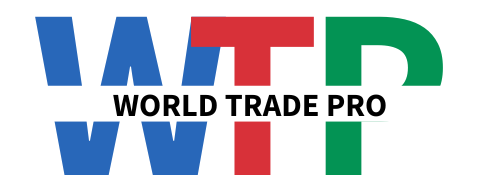What exchange is oil traded on?
Quote from chief_editor on September 23, 2023, 9:51 amCrude oil is one of the most actively traded commodities worldwide. But being a physical commodity, there is no single centralized exchange where all crude oil trading occurs. Instead, major benchmark crude oil futures contracts trade on regulated commodity exchanges, while a large portion of real-world oil trading happens over-the-counter.
Some key exchanges for crude oil futures trading are:
NYMEX
The New York Mercantile Exchange (NYMEX) under the CME Group is the largest oil futures trading exchange and home to the world’s most liquid crude contract – The WTI or West Texas Intermediate crude futures. WTI prices reflect physical oil markets in North America and is the benchmark for US crude prices. Nearly 15% of global oil production is pegged to WTI prices.
ICE
The Intercontinental Exchange (ICE) offers the Brent Crude Oil Futures contract which serves as the international oil price benchmark. ICE also hosts gasoline, heating oil and EU carbon emissions futures trading representing Europe's oil markets. It is the second largest exchange for crude oil trading after NYMEX in terms of contract volume.
DME
The Dubai Mercantile Exchange (DME), home to the Oman crude oil futures contract, gives exposure to Middle East oil pricing. DME's Oman contract uses a formula pricing Oman/Dubai average prices, making it a benchmark for Gulf crude grades.
TOCOM
The Tokyo Commodity Exchange (TOCOM) offers crude oil futures contracts that reflect market prices for Japan and the Asia-Pacific region. TOCOM also offers gasoline, kerosene and gas oil futures which are widely tracked in Asia.
SHFE
The Shanghai Futures Exchange (SHFE) hosts China's own crude oil futures contract trading in yuan. This contract reflects demand and supplies from the world's largest oil importer providing a Chinese benchmark price.
OTC Trading
While exchanges provide price transparency and regulation, a large volume of real-world physical oil trading occurs over-the-counter. OTC trading takes place directly between oil producers, consumers, traders, brokers and dealers rather than on a centralized platform. Many prefer OTC trading for flexibility in terms and better reflecting supply-demand fundamentals.
So in summary, while oil futures exchanges like NYMEX and ICE provide key global crude price benchmarks, a lot of actual crude oil buying and selling happens privately over-the-counter. The OTC market provides complementary liquidity to exchange trading.
Crude oil is one of the most actively traded commodities worldwide. But being a physical commodity, there is no single centralized exchange where all crude oil trading occurs. Instead, major benchmark crude oil futures contracts trade on regulated commodity exchanges, while a large portion of real-world oil trading happens over-the-counter.
Some key exchanges for crude oil futures trading are:
NYMEX
The New York Mercantile Exchange (NYMEX) under the CME Group is the largest oil futures trading exchange and home to the world’s most liquid crude contract – The WTI or West Texas Intermediate crude futures. WTI prices reflect physical oil markets in North America and is the benchmark for US crude prices. Nearly 15% of global oil production is pegged to WTI prices.
ICE
The Intercontinental Exchange (ICE) offers the Brent Crude Oil Futures contract which serves as the international oil price benchmark. ICE also hosts gasoline, heating oil and EU carbon emissions futures trading representing Europe's oil markets. It is the second largest exchange for crude oil trading after NYMEX in terms of contract volume.
DME
The Dubai Mercantile Exchange (DME), home to the Oman crude oil futures contract, gives exposure to Middle East oil pricing. DME's Oman contract uses a formula pricing Oman/Dubai average prices, making it a benchmark for Gulf crude grades.
TOCOM
The Tokyo Commodity Exchange (TOCOM) offers crude oil futures contracts that reflect market prices for Japan and the Asia-Pacific region. TOCOM also offers gasoline, kerosene and gas oil futures which are widely tracked in Asia.
SHFE
The Shanghai Futures Exchange (SHFE) hosts China's own crude oil futures contract trading in yuan. This contract reflects demand and supplies from the world's largest oil importer providing a Chinese benchmark price.
OTC Trading
While exchanges provide price transparency and regulation, a large volume of real-world physical oil trading occurs over-the-counter. OTC trading takes place directly between oil producers, consumers, traders, brokers and dealers rather than on a centralized platform. Many prefer OTC trading for flexibility in terms and better reflecting supply-demand fundamentals.
So in summary, while oil futures exchanges like NYMEX and ICE provide key global crude price benchmarks, a lot of actual crude oil buying and selling happens privately over-the-counter. The OTC market provides complementary liquidity to exchange trading.

